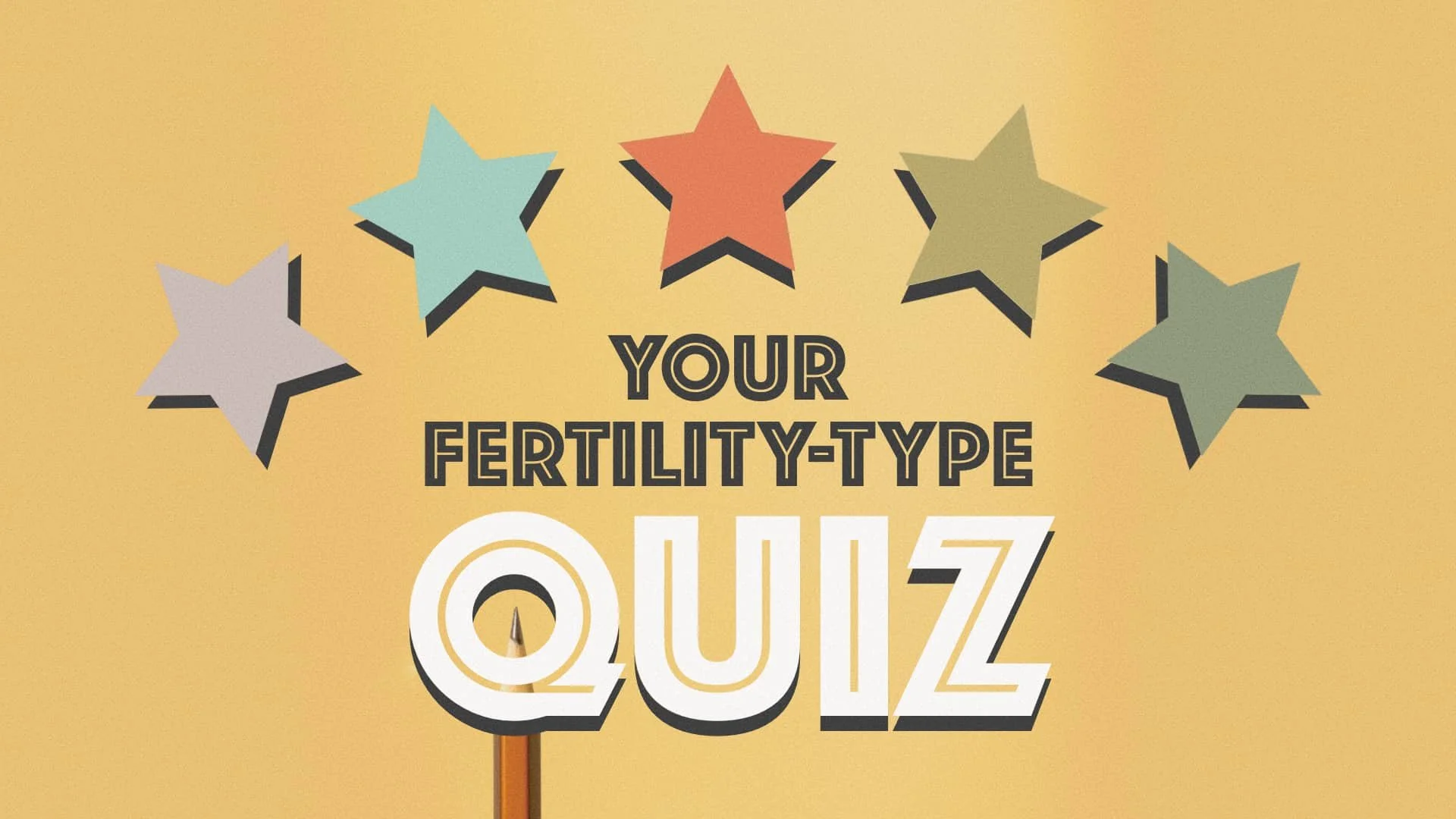TRAUMA-INFORMED ACUPUNCTURE: WHAT IS IT AND WHY IT MATTERS FOR HEALING AND FERTILITY
Is trauma-informed care just another new buzz-phrase?
I recently stopped to think about some of the current wellness buzz-phrases, and “trauma-informed,” sprang to mind. It’s definitely something more and more people have heard of — which is great because, for me, being trauma-informed isn’t simply a recent trend. It’s the core of effective and ethical healthcare.
I’ve practiced this way, waaay before I ever heard the term, because it felt intuitive — both as a person who’s had (has?) PTSD from a past assault, and as a provider caring for people in really vulnerable and often traumatic parts of life.
Then I thought to myself, sure, I know what trauma-informed means to me and how I’ve built it into my clinic and IVF coverage, but does the average person know what it means or why it most likely matters to them?
Fast forward a week or so and — voilà! — here’s my official ‘Trauma Informed Acupuncture’ post. I’m about to share all the ways it’s a core part of Life Healing Life, why it’s so darn important, and what it can do for you and your fertility or other holistic goals! I’ll even include cutting-edge (Really? Yes really!) research about trauma and reproductive issues for further learning at the end.
And, if you already “get it”and are looking for trauma-informed acupuncture in the Twin Cities, you’re in the right place.
What is trauma-informed acupuncture?
Trauma-informed acupuncture prioritizes safety, trust, and empowerment — along with great Traditional Chinese Medicine. It recognizes that many of us carry invisible burdens, whether from childhood experiences, medical procedures, pregnancy loss, or the ongoing stress of fertility treatments. These past experiences don’t just fade away. They become woven into our physical and emotional health and deserve thoughtful attention in any healthcare setting — especially holistic ones.
At the end of the day, trauma-informed care is ultimately as much about nervous system regulation as it is about working on acute needs and main concerns, because they have to be done together for the best results.
“Trauma is not what happens to us, but what we hold inside in the absence of an empathetic witness.” — Dr. Bessel van der Kolk
What does trauma-informed care look like?
With science-backed nervous system regulation at the heart, I’ve designed my own practice to be a space where safety, choice, and trust always come first. Here’s how I do that:
A Clinic Designed for Comfort
Soothing, predictable environment with soft lighting and calming elements
Private and peaceful treatment rooms that feel like a sanctuary, and not a sterile medical space
Control in your hands, including a bell you can ring anytime you need me
Sessions Built Around Your Needs
We start with time to talk, because your story matters to your healing
Breathing and centering ideas help you transition into treatment
Gentle, effective needling techniques that prioritize comfort (no "no pain, no gain" here!)
Space for whatever emotions arise — tears, frustration, laughter, all are welcome
A whole-person approach. I see beyond lists of symptoms — I see you. Together, we work on nervous system regulation, emotional expression, and building a felt sense of control over your own choices and health along with your main concerns!
In other words, unlike conventional healthcare settings or even other acupuncture clinics where you might feel pressure to “push through discomfort” or even have your discomfort dismissed, trauma-informed care puts your sense of comfort, safety, and control at the center of everything. That allows the treatments to work faster and better!
Why trauma-informed acupuncture matters for fertility and whole-person healing.
At the risk of being redundant, I’m gonna say it again. A LOT of us carry trauma in our bodies and minds. Trauma is pervasive. Particularly for those who identify as women. Childhood ACES, systemic oppression, partner abuse, sexual harassment or assault, medical trauma, ambiguous loss. The bottom line is so many of us carry unseen holistic and cumulative burdens.
And for those struggling with infertility, new trauma is often added — each cycle of hope and loss, invasive medical procedures, and all the societal pressures of pregnancy or growing your family can leave deep emotional and physical imprints.
Working on this burden is a profound way to make reaching your main goals more likely, while ignoring — or worse, adding to — this burden is a profound way to make reaching your main goal less likely.
Healing isn’t just about fixing symptoms. It’s about restoring balance, wholeness, and a deep sense of control over your own body and choices. And in this regulated place, optimal hormonal, digestive, emotional, circulatory, and reproductive functions happen. Everything becomes so much less up-hill, and so much more deeply healing and person-centered.
“The effects of trauma can be passed down through generations, but so can the resilience and healing.” — Dr. Soma Ganesan
The power of being truly seen and heard.
When trauma-informed care becomes the foundation of healthcare — not just a buzzword — something remarkable happens. Research shows patients experience:
Better outcomes, including less anxiety and depression
Improved treatment adherence
More sustainable results
Real positive ripples in both the mind and body
And WAY beyond the clinical benefits, there's something profoundly human that occurs: the restoration of agency and trust going forward into the future.
At Life Healing Life, a trauma-informed approach isn't an add-on service or trendy idea from a new seminar I just took. It's woven into every interaction, from a first phone call to ongoing treatment plans — and it has been for decades. Your body knows the difference between being processed through a system and being truly seen. And that matters.
If you're navigating fertility challenges, recovering from loss, or simply seeking healthcare that honors your whole story, I invite you to experience acupuncture that prioritizes not just what ails you, but what empowers and heals you.
Schedule a session today and experience what acupuncture can be when it’s truly designed with safety, trust, and deep healing in mind. And if you’re new to acupuncture, I understand it can feel vulnerable to try something unfamiliar. I’m always happy to offer a brief phone consultation before we work together — just reach out.
Warmly,
Nicole
Quick post FAQs.
What is trauma-informed acupuncture, and how does it work?
Answer.
Trauma-informed acupuncture is a specialized approach that prioritizes safety, trust, and nervous system regulation while addressing physical and emotional health. Unlike traditional acupuncture, it acknowledges past trauma — including medical trauma, fertility struggles, or emotional stress — and integrates gentle techniques to prevent overwhelm. By working with the body's nervous system, trauma-informed acupuncture helps reduce stress, balance hormones, and support fertility and overall well-being.
2. Can acupuncture help with trauma and PTSD?
Answer.
Yes! Acupuncture is backed by scientific research for its ability to support trauma recovery and PTSD by calming the sympathetic nervous system (fight-or-flight response) and promoting parasympathetic activation (rest-and-digest state). Trauma-informed acupuncture goes further by ensuring a safe, empowering experience, helping with symptoms like anxiety, sleep issues, and chronic pain. Studies show that acupuncture can lower cortisol levels, decrease hyper-arousal, and improve emotional resilience in those with trauma-related conditions.
3. How does trauma-informed acupuncture support fertility and IVF?
Answer.
Trauma-informed acupuncture supports fertility by addressing stress, hormonal imbalances, and underlying trauma that may impact conception. Stress and unresolved trauma can affect ovulation, implantation, and embryo development. Acupuncture has been shown to improve blood flow to reproductive organs, regulate hormones, and enhance IVF success rates. In a trauma-informed setting, treatments are tailored to reduce medical anxiety, process past losses, and provide emotional and physical support throughout the fertility journey.
READ MORE
Read the Harvard School of Public Health article exploring links between trauma and adverse reproductive health outcomes.
Check out my post about how Trauma, childhood ACES, Neglect, and Sexual Trauma Impact Fertility.
Work on extra unfair infertility layers like trauma with my Extra Awful Fertility Freebie.
Explore more Research about the Bidirectional Relationship Between Infertility & Trauma.
Nicole Lange
LICENSED ACUPUNCTURIST
HOLISTIC FERTILITY EDUCATOR








Something more than just another buzz-word?